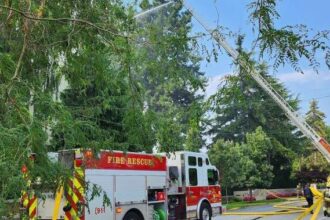A growing shadow of violence has fallen across New Brunswick as intimate partner violence claims more lives, prompting urgent questions about systemic failures and prevention strategies. This troubling trend has sparked both public outcry and institutional introspection, with authorities now scrambling to address what many experts describe as a preventable crisis.
Last month’s murder-suicide in Riverview sent shockwaves through the province. A woman and her two young children were found dead in their home, victims of what police confirmed was intimate partner violence perpetrated by the woman’s husband, who then took his own life. This devastating incident is not isolated but part of a disturbing pattern emerging across New Brunswick communities.
“What we’re witnessing isn’t simply a series of individual tragedies—it’s a systemic failure that demands immediate attention,” says Dr. Miranda Thompson, director of the New Brunswick Coalition Against Domestic Violence. “The warning signs were there in many of these cases, but our response mechanisms aren’t robust enough to prevent escalation.”
Provincial data reveals a 23% increase in reported intimate partner violence incidents over the past three years, with rural communities particularly affected. More alarming is the revelation that approximately 70% of victims who suffered fatal violence had previous contact with either law enforcement or social services, suggesting critical missed intervention opportunities.
The New Brunswick government announced last week a comprehensive review of existing protocols following mounting pressure from advocacy groups and opposition parties. Premier Blaine Higgs committed $3.2 million toward emergency shelter expansion and crisis response training, though critics argue this falls well short of addressing the complex underlying issues.
“We need to recognize that intimate partner violence isn’t just a ‘domestic issue’—it’s a public health crisis requiring coordinated, evidence-based intervention,” explains Sophia Rodriguez, who survived a near-fatal assault by her former partner in Moncton. “The support systems that should protect vulnerable individuals are fragmented, under-resourced, and often inaccessible when they’re needed most.”
Particularly concerning is the situation in Indigenous communities, where historical trauma compounds contemporary challenges. “First Nations women face unique barriers when seeking help,” says Elder Mary Sabattis from Tobique First Nation. “Cultural competency and community-led solutions must be central to any provincial strategy.”
Law enforcement agencies across New Brunswick have initiated specialized training programs focused on risk assessment and early intervention. Fredericton Police Chief Daniel McKenzie acknowledges past shortcomings: “We’re implementing new protocols for identifying high-risk cases and coordinating with community resources. The reality is we need to do better—lives literally depend on it.”
The province’s justice system has also come under scrutiny for inconsistent application of protective orders and insufficient monitoring of high-risk offenders. Court records indicate that restraining orders were violated in 42% of severe violence cases reviewed over the past two years, often with minimal consequences.
Mental health experts emphasize that addressing the root causes requires investment in prevention programs targeting potential perpetrators. “We focus almost exclusively on crisis response rather than prevention,” notes psychologist Dr. James Forrester, who works with violent offenders. “Intervening early with those showing concerning behaviors could prevent escalation to violence.”
As communities across New Brunswick grapple with this crisis, the question remains: will the promised reforms translate into meaningful change, or will they join a long history of well-intentioned but ultimately insufficient responses to intimate partner violence? For families mourning loved ones lost to this preventable violence, the answer cannot come soon enough.










